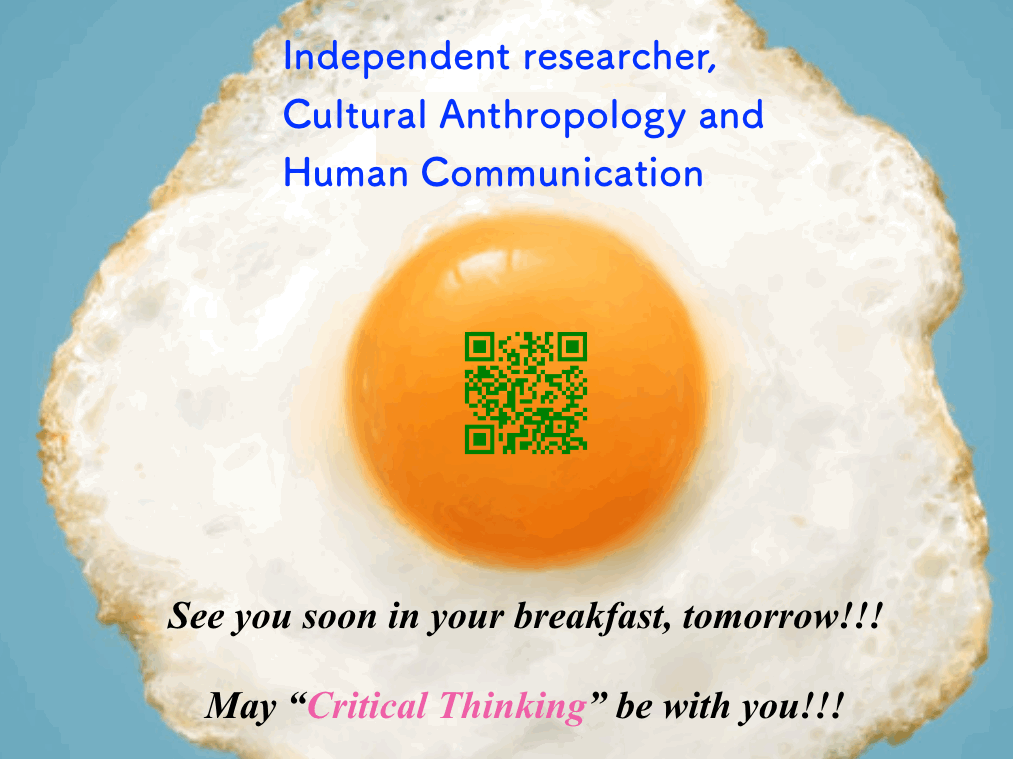コモンズの悲劇
Tragedy of the
Commons

Lilia Prado,
1928-2006.
コモンズの悲劇
Tragedy of the
Commons

Lilia Prado,
1928-2006.
★「コモンズの悲劇(Tragedy of the Commons)とは、多数者が利用できる共有資源が乱獲されることによって資源の枯渇を招いてしまうという経済学における法則。共有地の悲劇ともいう」 (ウィキペディアよりhttps://goo.gl/IYkPZU)
ディヴィッド・ヒュームによると、ゲームの規則がそれなりに遵守されていなければ、「信頼」が存在することはない。つまり、ゴミ出しルールの遵守や、公共の場でのゴミ(塵)がゴミ箱に投函さ
れているいる状態は、コミュニティに参加する人たちの間に、お互いに裏切ることのない「信頼」が形成されている状態なのであろう。
| The rebuttal to the invisible hand in population control can be found in a scenario first sketched in a littleknown pamphlet6 in 1833 by a mathematical amateur named William Forster Lloyd (1794-1852). We may well call it “the tragedy of the commons,” using the word “tragedy” as the philosopher Whitehead used it: “The essence of dramatic tragedy is not unhappiness. It resides in the solemnity of the remorseless working of things.” He then goes on to say, “This inevitableness of destiny can only be illustrated in terms of human life by incidents which in fact involve unhappiness. For it is only by them that the futility of escape can be made evident in the drama. | 人口制御における見えざる手に対する反論は、ウィリアム・フォスター・
ロイド(1794-1852)という数学の素人が1833年に出版したあまり知られていない小冊子6に初めて描かれたシナリオに見出すことができる。哲学
者ホワイトヘッドが使われた「悲劇」という言葉を使って、これを「コモンズの悲劇」と呼んでもよいだろう。「演劇的悲劇の本質は、不幸ではない。ドラマ
チックな悲劇の本質は不幸ではない。それは、物事の無慈悲な働きの厳粛さの中にある"
そして、「この運命の必然性は、人間の生活という観点からは、実際には不幸を伴う事件によってのみ説明されうるのである。なぜなら、そのような事件によっ
てのみ、逃げることのむなしさがドラマの中で明らかにされるからである。 |
| The tragedy of the commons develops in this way. Picture a pasture open to all. It is to be expected that each herdsman will try to keep as many cattle as possible on the commons. Such an arrangement may work reasonably satisfactorily for centuries because tribal wars, poaching, and disease keep the numbers of both man and beast well below the carrying capacity of the land. Finally, however, comes the day of reckoning, that is, the day when the long-desired goal of social stability becomes a reality. At this point, the inherent logic of the commons remorselessly generates tragedy. | コモンズの悲劇は、このように展開される。万人に開放された牧場を思い
浮かべてください。各牧場主はできるだけ多くの家畜をコモンズで飼おうとすることが予想される。部族間の争いや密猟、病気などによって、人間と動物の数は
土地の環境収容力をはるかに下回るため、このような配置は何世紀にもわたってそれなりに満足のいく形で機能するかもしれない。しかし、ついに「運命の日」
がやってくる。つまり、社会的安定という悲願が現実のものとなる日である。このとき、コモンズ固有の論理は容赦なく悲劇を生み出す。 |
|
As a rational being, each herdsman seeks to maximize his gain. Explicitly, or implicitly, more or less consciously, he asks: “What is the utility to me of adding one more animal to my herd?” This utility has one negative and one positive component. 1) The positive component is the function of the increment of one animal. Since the herdsman receives all the proceeds from the sale of the additional animal, the positive utility is nearly +1. 2) The negative component is a function of the additional overgrazing created by one moreanimal. Since, however, the effects of overgrazing are shared by all the herdsmen, the negative utility for any particular decision-making herdsman is only a fraction of -1. |
合理的な存在である牧夫は、自分の利益を最大化しようとする。明示的に
せよ、暗黙的にせよ、多かれ少なかれ意識的にせよ、彼は問いかける。「この効用には、負の効用と正の効用がある。この効用には負の成分と正の成分がある。 1)正の成分は1頭の増加の関数である。この場合,牧夫は1頭の増体から得られる収益をすべて受け取るので,正の効用はほぼ+1である。 2) 負の効用は,1頭増えることによる過放牧の追加である。しかし,過放牧の影響はすべての牧夫が共有するため,意思決定を行う牧夫の負の効用は-1 の数分の1にすぎない。 |
| Adding together the component partial utilities, the rational herdsman concludes that the only sensible course for him to pursue is to add another animal to his herd. And another, and another …But this is the conclusion reached by each and every rational herdsman sharing a commons. Therein is the tragedy. Each man is locked into a system that compels him to increase his herd without limit — in a world that is limited. Ruin is the destination toward which all men rush, each pursuing his own best interest in a society that believes in the freedom of the commons. Freedom in a commons brings ruin to all." (Hardin, Garrett 1968: 1224) - Tragedy of the commons, by Wikipedia | 部分効用を足し合わせると、合理的な牧夫は、自分の群れにもう一頭動物
を加えることが唯一の賢明な方法であると結論づけるのである。しかし、この結論は、コモンズを共有する合理的な牧夫の一人ひとりが出す結論である。そこに
悲劇がある。各人が、制限のある世界で、無制限に自分の群れを増やすことを強いるシステムに閉じ込められているのだ。コモンズの自由を信奉する社会の中
で、各人が自分の利益を追求し、破滅に向かって突進していくのである。コモンズにおける自由は、すべての人に破滅をもたらす。 |
| La tragedia de los comunes (en inglés Tragedy of the commons) es un dilema descrito por Garrett Hardin en 1968, y publicado en la revista Science.1 Describe una situación en la cual varios individuos, motivados solo por el interés personal y actuando independiente pero racionalmente, terminan por destruir un recurso compartido limitado (el común) aunque a ninguno de ellos, ya sea como individuos o en conjunto, les convenga que tal destrucción suceda. - Tragedia de los comunes, by Wikipedia | コモンズの悲劇とは、1968年にGarrett
HardinがScience誌に発表したジレンマである。1
複数の個人が、自己利益のみを動機として、独立して、しかし合理的に行動し、個人としても集団としても、いずれの利益にもならないのに、限られた共有資源
(コモンズ)を破壊してしまう状況を示すものである。 |
| Tragedy of the commons, by Wikipedia |
人が快適に歩くことが期待されている遊歩道に、誰もみていないからといって、散歩した犬のウンチを放棄しておくのもコモンズの悲劇である——た
だし自治体によっては条例違反で罰金が課せられることもある。
リンク
文献
その他の情報
Copyleft, CC, Mitzub'ixi Quq Chi'j, 1996-2099


Do not paste, but
[Re]Think our message for all undergraduate
students!!!